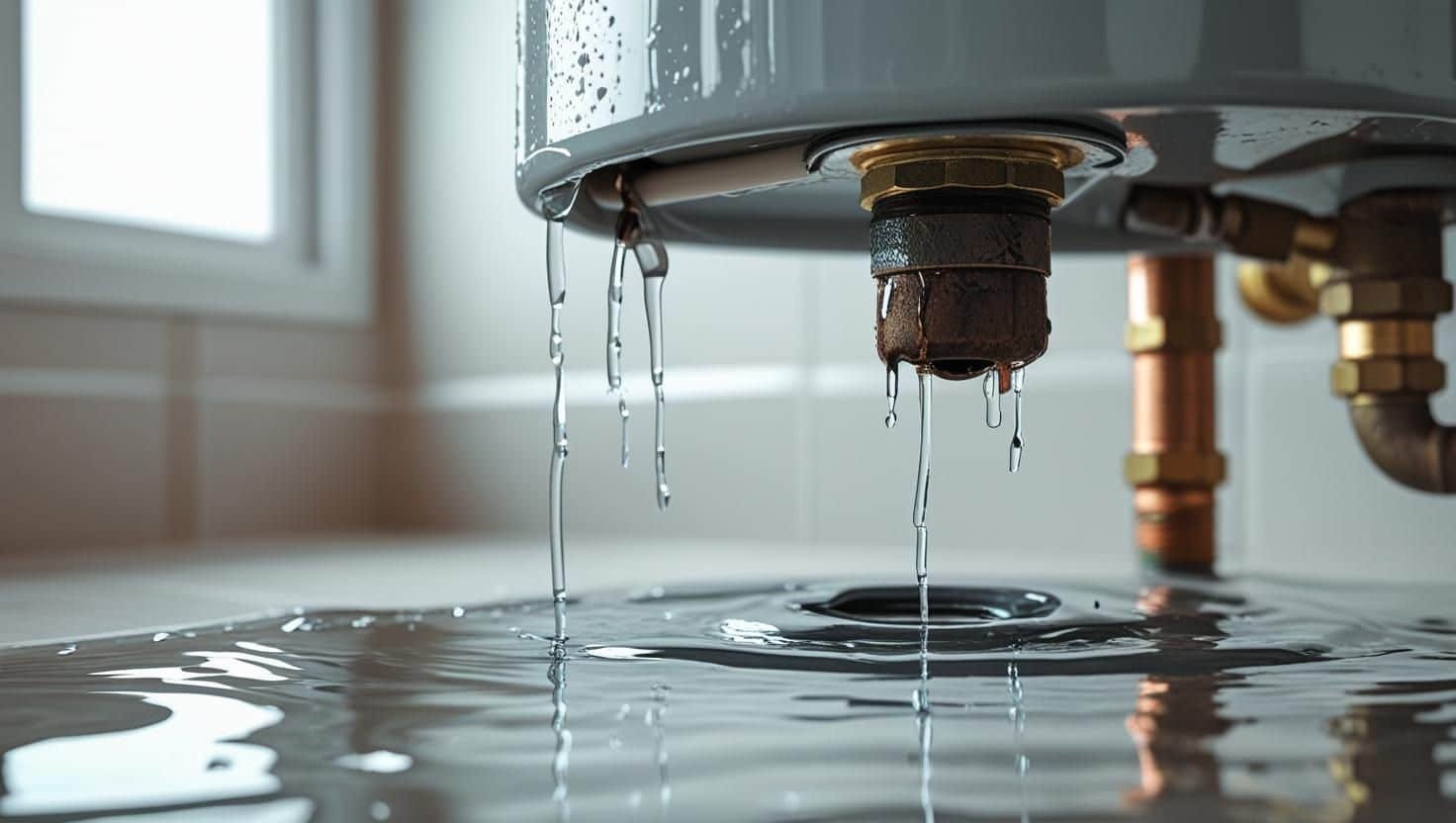Discovering a leak in your hot water heater can be a shocking and potentially expensive surprise. However, knowing what to do when your hot water heater is leaking can prevent further damage and save you money. A leaking water heater not only affects your utility bills but can also lead to significant water damage in your home. Understanding the steps you need to take when faced with this issue is crucial. This article will guide you through the necessary actions, helping you maintain peace of mind and protect your property. As we delve deeper, you’ll learn about the common causes of leaks, how to assess the severity of the situation, and the best practices for dealing with leaks efficiently.
Understanding the Situation
First, it’s crucial to understand why a leak might occur. Hot water heaters can leak due to a variety of reasons such as a faulty valve, corrosion, excessive pressure, or a loose connection. Identifying the source of the leak is the first step in addressing the problem. A leaking water heater isn’t just an inconvenience; it can lead to significant water damage and potential safety hazards if not handled promptly.
Immediate Safety Steps
Your safety should be the top priority. Here’s what to do immediately:
- Turn off the Power: For electric heaters, switch off the breaker. For gas heaters, turn the gas valve to ‘off’.
- Shut off the Water Supply: Locate the cold water shut-off valve above the heater and turn it clockwise.
- Drain the Tank: Connect a hose to the drainage valve and direct the other end to a safe drainage area to avoid water damage.
These steps help prevent further damage and ensure the area is safe for inspection.
When to Call Professionals
While minor issues might be manageable, it’s important to know when to call in professionals. If you notice significant water pooling, suspect a gas leak, or if the tank is older than 10 years, it’s time to bring in the experts. A professional plumber can accurately diagnose the issue and provide a reliable solution. Their expertise is invaluable, especially for complex problems that could lead to more damage if improperly handled.
What Professionals Do
Professionals will usually start by inspecting the heater to pinpoint the leak’s source. This might involve checking the temperature and pressure relief valve, inspecting the tank for corrosion, or examining the connections and seals. Depending on the diagnosis, they could replace faulty parts, patch minor leaks, or recommend a full tank replacement if necessary. Understanding what professionals do can give you peace of mind and help you make informed decisions.
Preventing Future Issues
Prevention is always better than cure. Regular maintenance can significantly reduce the risk of leaks. Here are some tips:
- Regular Inspections: Have your water heater inspected by a professional annually.
- Flush the Tank: Flushing the tank every six months can remove sediment buildup.
- Check for Corrosion: Regularly inspect the anode rod and replace it if necessary to prevent tank corrosion.
These practices not only extend the life of your heater but also improve efficiency.
Understanding Costs
The cost of repairing a leaking water heater can vary widely. On average, repairs might range from $300 to $1,500. If a replacement is necessary, costs can rise significantly. It’s wise to get multiple quotes from reputable professionals to ensure you’re getting a fair price.
Questions to Ask Professionals
When engaging with professionals, consider asking these questions:
- What is the source of the leak? Understanding the cause can help prevent future issues.
- What are my repair options? Knowing all available options can help you make an informed decision.
- How long will the repairs take? This helps you plan accordingly.
These questions will help you understand the situation better and ensure you receive quality service.
Conclusion
While discovering that your hot water heater is leaking can be stressful, knowing what to do when your hot water heater is leaking can make the situation more manageable. Prioritize safety, seek professional help when necessary, and take preventive measures to avoid future issues. By doing so, you can ensure your water heater remains in good working condition for years to come.

